Living With the Locals Through Community-Based Tourism
Throwing yourself into a new culture can be one of the most rewarding parts of travel. Here are some things to consider if you're about to check-in to a homestay and check out a place with a community-run operator.
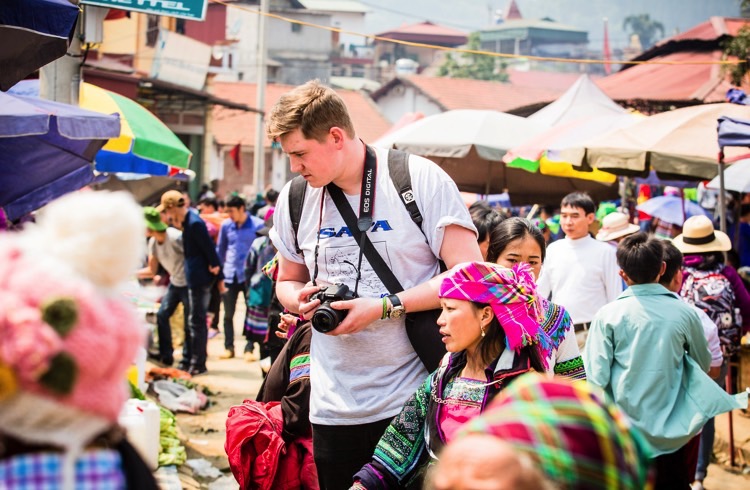 Photo © Brian Rapsey
Photo © Brian Rapsey
When traveling, it’s easy to just see the veneer of culture without really getting to the heart of a community and understanding the local people. It’s also hard to know whether the money you’re spending on a tour or hotel is really going to benefit the locals.
Community tourism offers a solution to this. Locally run organizations, usually based in rural locations, give travelers the opportunity to fully experience the culture of a community and connect with locals. Often, community tourism will involve you being hosted by a local in their home as they go about their day-to-day lives. It can give travelers an opportunity to see what’s beneath the surface of a community as well as support the local economy through sustainable tourism.
Things to consider before you choose community tourism
What to expect
Just like the people and cultures you’ll come across in your travels, the homes and facilities you’ll come across can wildly vary. Some homestay providers simply clear out a bedroom for your visit, add another portion to their food preparation, and treat you as one of the family. Others have built separate living quarters for visiting travelers and have a wider range of amenities than you might be used to finding in a hotel. It’s always a good idea to do a bit of research before a community visit and make sure you’re prepared for what environment you’ll be living in.
It’s also valuable to look into the customs and traditions of the hosting society before arriving. Having a basic understanding of appropriate greetings, food etiquette and clothing can both prepare you for the experience and avoid any accidental offense.
A smile goes a long way
English may not be widely spoken by many, if anyone, in rural communities. So unless you speak the local language, you're going to be miming your way through your request for more chicken or less rice. For many, this is a welcome challenge – it’s amazing how much can be communicated by pointing and a smile.
Prepare to be immersed
There are many challenges involved – eating unfamiliar foods, adjusting to the local schedule and living among the chickens and roosters (who, by the way, cock-a-doodle-doo WAY before dawn). However, the rewards can be rich, educational, and inspiring – it’s extremely rare to get a first-hand view of the lives of people so different from you, culturally, economically and personally. My hosts have been among the most generous, hard-working, and genuine people I've ever met.
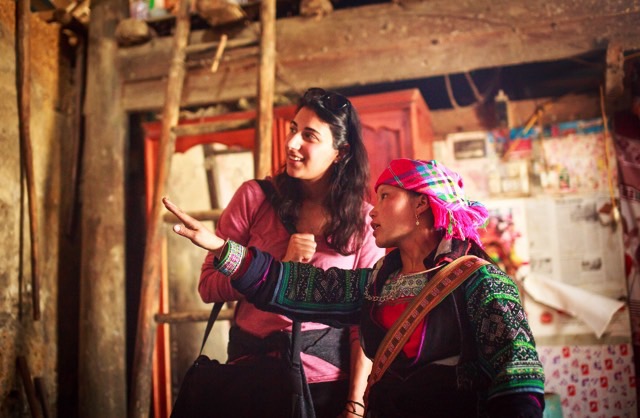
The benefits of community-based tourism
Be prepared to live on basics
You might find a lot of homestays are a far cry from a 5-star hotel, but just remember, this push out of your comfort zone can be a way to challenge yourself and give you a better understanding of the people and culture around you. In my experience, homestay hosts were always happy to make sure I had all the necessities for my stay.
Put yourself out there
Diving into a new way of daily life and culture can be daunting and being surrounded by people who may not speak the same language as you can be challenging. Different cultures around the world approach new visitors differently, be aware that some cultures can be shyer at approaching people they don’t know than others.
Humans are naturally curious about others, so put yourself out there and strike up a conversation. I know from my experience the most rewarding memories have been the connections I’ve made with people. So be open-minded, be respectful, and be curious.
Participate
You may not be visiting a community to volunteer your time, but nothing builds a bridge, like helping with the daily work. Whether that means helping with meals or in the fields, do what you can to participate in the lives of the people you're visiting. You might see things you never would have imagined (read about this traveler’s wild experience with a host family in Mongolia), or even leave with a new skill.
Share your stories
You may be visiting to learn about the lives and cultures of the host community, but they are just as interested in learning about life in your home country. Think of it as a cross-cultural exchange, so show photos, tell stories, and share customs.
Related articles
Simple and flexible travel insurance
You can buy at home or while traveling, and claim online from anywhere in the world. With 150+ adventure activities covered and 24/7 emergency assistance.
Get a quote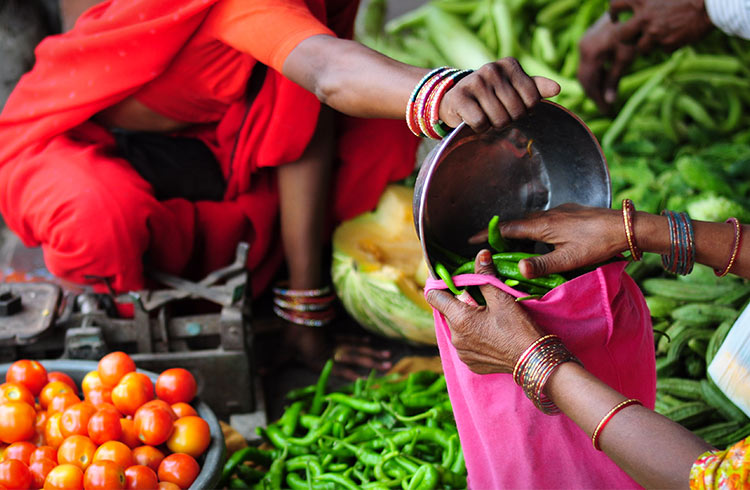
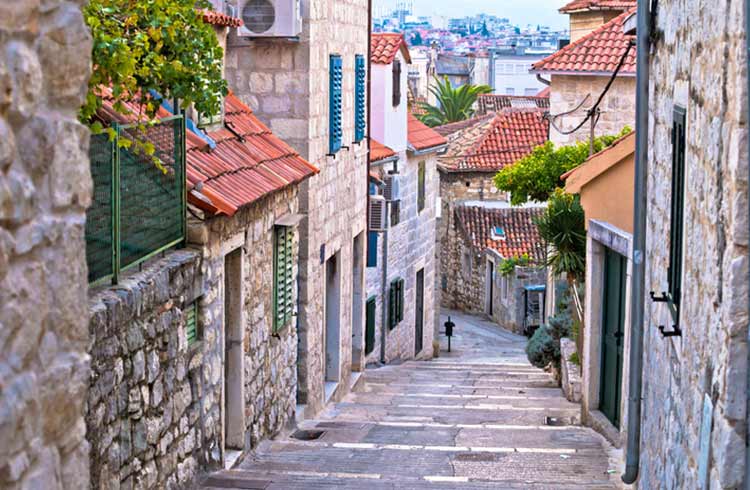
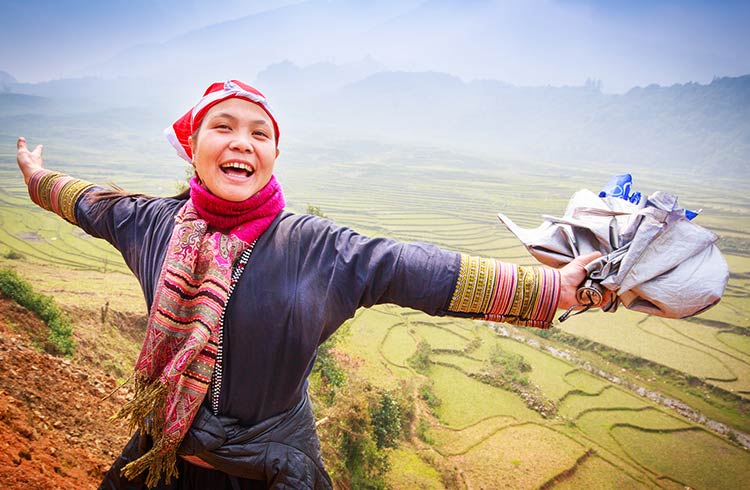
6 Comments
I appreciated the article on Community travel by Ted Martens. Where can I find information on stays in Spanish speaking countries. My interest includes the following: Costa Rica, Spain near Barcelona, Merida and Guadalajara, Mexico.
My goal is to spend about two to six months. I speak Spanish, but have not mastered complete fluency.
I am a very young spirited and physical agile sixty-nine year old. I dance salsa, bachata and kizomba about three times a week and workout MWF for three/four hours. Suffice it to say, I am unusually ACTIVE.
Moreover, I have expertise and formal education (Ph.D.) in literature, and modern dance as well as decades of life experience in salsa and poetry. In short, I have skills that I can share. Even an exchange/barter situation may work. Feeling grounded in a community for a few months is the experience that I seek.
Hence, I need to be somewhere where I can engage with the community and continue my active lifestyle.
Cordially,
Sinbad = nickname
To Sinbad,
I'm a 72-year-old retired solo full-time traveler. You might want to think of traveling to/through Ecuador, Colombia, and Panama. They are all Spanish speaking countries and are all very interesting. Last year I spent two months in each and am now in an extended stay in the Bocas del Toro area of Panama because of the pandemic. It's the longest I've stayed in any one place for quite awhile, 10 months and counting. I've been living on a beautiful tropical Caribbean island that has been very safe from the covid virus.
The local people are very friendly. Speaking Spanish, you would fit right into the community very easily. I did and I don't even speak that much Spanish.
Sinbad,
Oops, I forgot to say that you must visit Cali in Colombia as that's where Salsa was born! You would definitely fit right in! AND, contrary to many who think it is unsafe there, it's NOT. I stayed there for a couple of weeks and felt very safe. Colombia has really cleaned up its act.
Sinbad,
I took early retirement 5 years ago, and since then I’ve been avoiding the Canadian winters, traveling solo through Central America, South America and SE Asia.
I do work exchanges like: teaching English, helping run an accommodation business, and labouring on a farm.
I’m on the “Helpx” network, and I highly recommend it! You can log on as a guest and check it out.
Some are longterm (several months) and some are just for a week or two. I’ve stayed in some lovely accommodations, and met some great people. Often certain meals are included, or at least access to a kitchen and staples.
And I agree with Steve....don’t miss Colombia. I missed Cali, but loved Cartagena, Medellin and Jardin!
Ecuador, Peru and Costa Rica are all lovely countries too. My Spanish improves so much when I’m immersed in the culture, living with locals.
This year I had to cut short my travels in S. America, due to Covid. I spent nearly 3 months in Argentina and Uruguay, and couldn’t make it to Chile before having to return home.
There are loads of great Helpx gigs down there too!
Here’s hoping that we can resume our travels later this year! 🤞
Shannon,
OMG, yer the first person I've 'met' who's been to Jardin, Colombia! Wasn't that a jewel of a place? I also spent time in Medellin, Bogota, Villa de Leyva, and my favorite, Cartagena.
We must be on the same page as I sold my house 5 years ago and have been traveling ever since. I too spent half a year traveling in Southeast Asia: Vietnam, Laos, Cambodia, and Thailand. They are all great countries to travel through, especially Vietnam.
I just found out that the vaccine will show up on our island before February. With it in my body, I'll be able to return to California in March or April. The pandemic has certainly had a huge impact on my travel plans as my next adventure was going to be India. Have you been there yet? It would be my second trip. So many places, so little time to see them all.
Lucky for me I started my travels in 2018, preCovid, started by walking the Camino Francais and Finistair, then after a week in Portugal and Germany flew to Dubai to stay with a friend for 3+weeks.
After met another friend in Delhi and travelled India for 5 weeks. So many great experiences and places Agra, Jaidpur, Udaipur, Amritsar, Red Fort, Taj and mini Taj, Varanasi, Mumbai, Ajantra and Ellora caves, Goa.
Then travelled on to Maldives, Sri Lanka, Thailand, Cambodia, Vietnam, Lao, N Thailand, Myanmar, Phillipines then back home to Canada.
Great 7 month retirement trip.